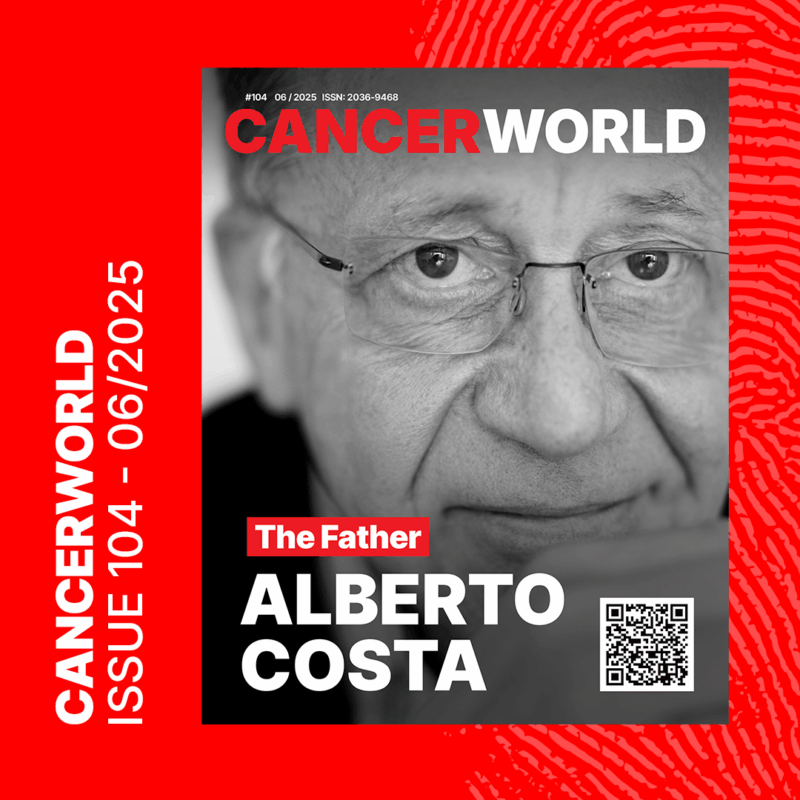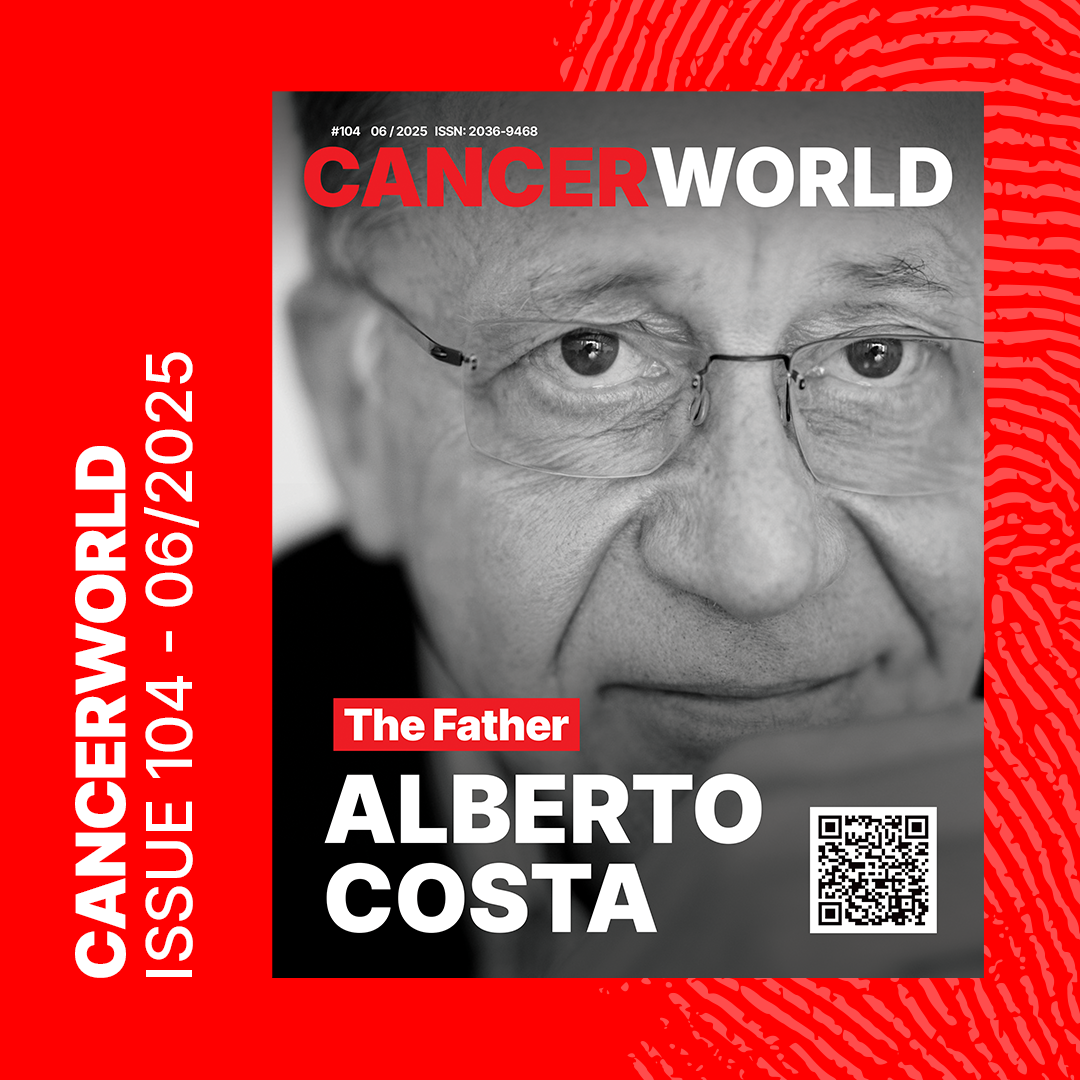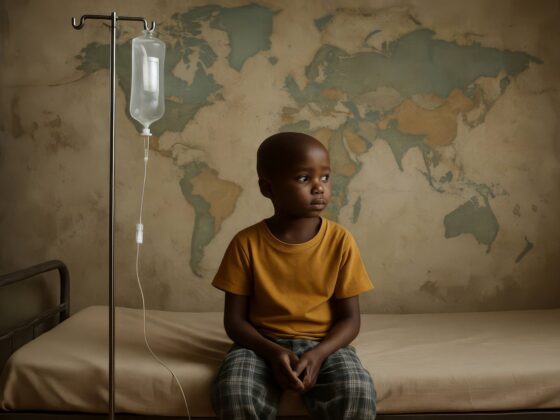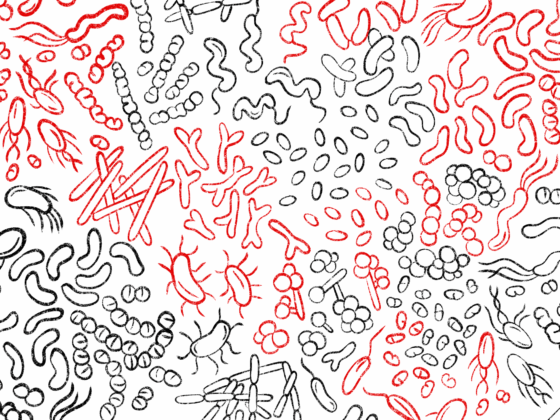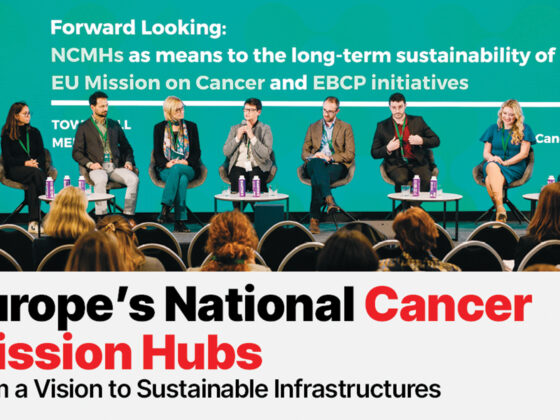“I mean, while I was reading the book you gave me about Umberto Veronesi,” I said, “there’s this expression: As you set out for Ithaca, hope your road is a long one, full of adventure, full of discovery. You wrote this about Umberto Veronesi, but I’m sure it’s also about you. And it happens that today, while we’re doing this interview, you’re in Ithaca. What would you comment on this?”
Alberto Costa smiled. “Well, first of all, those are lines from the Greek poet Cavafy, as you know. Cavafy was born in Alexandria, spent little time in Greece, but managed to summarize this concept of Ithaca—meaning that at a certain point in life, you must find a place to get ready to leave the world. The more intense your life has been, the less you need in the end.”
He gazed out the window. “Ithaca is poor, simple. A small island of just 3,000 inhabitants. In the Odyssey, when Ulysses’ son visits Sparta, they try to gift him beautiful horses. But he declines—‘We cannot have horses in Ithaca,’ he says. ‘It’s all rock. We only have goats.’ That’s the essence. When you grow older, you need less. You become simpler.”
“Is that why you chose Ithaca?” I asked.
“I chose Ithaca on purely intellectual grounds,” he said. “I’d never even been here. But when I retired from clinical practice at 65, after burnout from years of breast cancer stories, I needed something else. Ithaca had always been in my mind. I studied classical Greek and Latin in Milan—five years of Greek, eight of Latin. I had a fantastic teacher. And for me, The Odyssey became the book. I’m not religious—I don’t read the Bible or the Torah. For me, The Odyssey is my sacred text.”
“The gods in it—they help, but they also try to kill you. They’re jealous. They interfere. But ultimately, man or woman decides their life, with the gods as background characters. So I asked myself: Where is Ithaca?”
He laughed. “I did the most modern thing imaginable. I went on Booking.com. Found there was just one hotel and a lot of B&Bs. I came. Rented a scooter. Explored. And I found friends. Ithaca was Venetian for 300 years. The older generation still speaks some Italian. They feel linked to Venice. Suddenly, I felt at home. That was seven years ago. Now I return regularly. I have a little cottage up on the mountain.”
“Did you ever think of doing a training or ESO course here?”
“No,” he replied, shaking his head. “It takes one full day to arrive here. No airport. And that’s one of the reasons it’s beautiful—no mass tourism. You have to want to come. Athens, then Kefalonia, then the boat. It’s not practical.”
Shifting gears, I asked: “Can you tell your story from the beginning? Where were you born?”
“I was born in northwest Italy, nearly on the border with France, in a town, not a city, called Biella. Look it up on Wikipedia, it’s known as the City of Wool. All the big Italian wool brands, Zegna, Loro Piana, Piacenza, they come from Biella. That’s why I have this link to wool.”
“My father worked at Olivetti, famous for typewriters. He was later transferred to Milan, where I studied medicine. But we kept the connection to Biella. I had two sisters. I grew up in a family of women—even my cousins were girls. Summers were spent with seven women: my mother, two sisters, an aunt, two cousins, my grandmother, and the maid. I was the only boy. They killed me—but they also taught me everything.”
“I can cook, wash, and iron. My wives never had to look after my things—I always did them myself.”
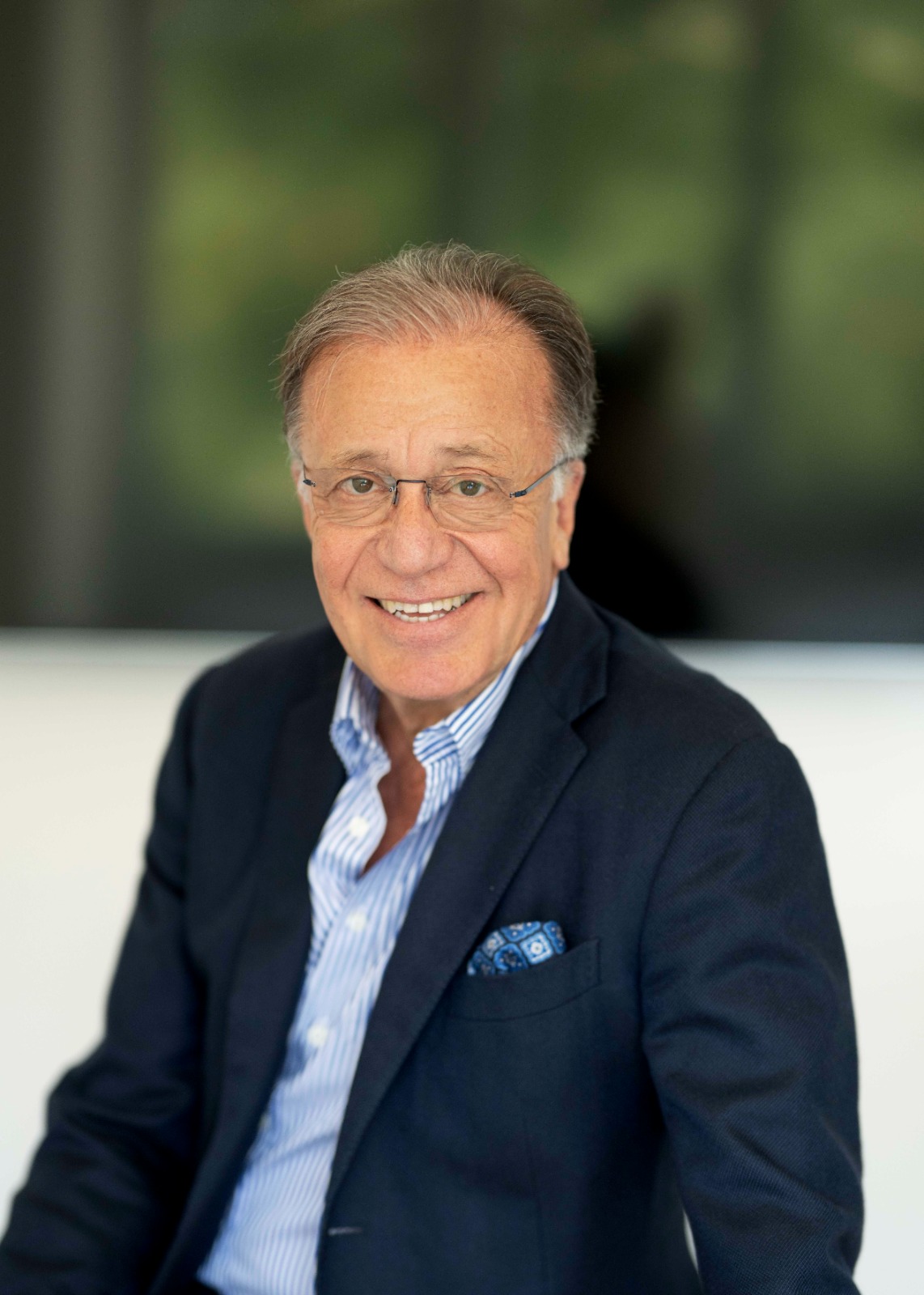
“And medicine?” I asked. “Why medicine?”
“Because of my girlfriend of the time,” he said, laughing. “We still call each other every year for birthdays. I wanted to study literature and be a teacher. I was very socialist at the time. You know that expression, ‘A young man who isn’t a socialist has no heart; an old man who is still a socialist has no brain.’ It may be true.”
“Those were the years of May 1968, the Paris revolts. On the world stage: Indira Gandhi, Fidel Castro, Marshal Tito. The Beatles. It was pure luck to grow up then. My kids say it’s unfair—we had the best years; they have iPhones.”
“She convinced me I needed to do something concrete for society. Back then, medicine was seen as a philanthropic activity. Hospitals in Italy—Florence’s Misericordia—were for the poor, for the plague. Medicine was solidarity. Not just a job. A mission.”
“And I don’t regret it. I’ve had a great professional life. But I retired without hesitation. Medicine today isn’t what it was. It’s about DRGs, costs, and guidelines. Less clinical responsibility. You follow protocols—rules made by managers. It’s not the same mission.”
“If not medicine today—what would you choose?” I asked.
He paused. “Wool. The environment. Circular economy. Did you know 98% of clothes today are not sheep wool? Only 2%. The rest—cotton and synthetics. Textile companies sell plastic. That’s why their cardigan costs 15 euros, and a real wool cardigan costs 60.”
“But people still want sheep for meat and cheese. So Europe has 70 million sheep. Each sheep produces 1.5 kilos of wool annually. That’s over 100 million kilos of wool every year—thrown away. A mountain of waste.”
“I’ve had a little foundation for 12 years now, trying to do something. We’re testing ways to use wool as fertilizer, especially here in Greece, where rain is rare. Wool retains water and releases nitrogen. If you bury wool under a plant, it grows better. That’s another thing I could’ve done—because it’s research, and it’s for the common good.”
“Or maybe,” I suggested, “you could start a new wool brand—Biella meets Milan. A rival to Loro Piana.”
He smiled. “Exactly. But I have no regrets. I loved being a doctor. Breast surgery is delicate, aesthetic, but not dangerous. You rarely make catastrophic mistakes. In 40 years, I can remember only two or three significant errors. I loved teaching. That’s why I have pupils all over the world. They came to Pavia. Learned. And I loved that.”
Mentorship and Legacy
“Mentorship is special to you,” I noted. “Can you tell me about your mentees?”
Alberto Costa lit up. “Just yesterday, I was speaking with Iskra Daskalova—a brilliant Bulgarian breast surgeon. Do you know her?”
“Yes,” I replied. “We’ve met.”
“She’s the perfect example,” he continued. “She came to Pavia, absorbed the philosophy. I encouraged her to go to Dublin to improve her English and learn about screening with my friend James Geraghty. She worked there, and now she’s at the European Medical Center in Moscow. Watching her grow, like watching your own children mature. I told her, ‘You should chair the course now. You’re ready. Go.’ And she is.”
He paused. “I worked in three places as head of department—Milan, Pavia, and Lugano. In each one, they chose my deputy as my successor. One woman, two men. They still call me on Sundays when they have a problem. That’s fulfillment. That’s legacy.”
“When I retired, I added a note to my website: I don’t see patients anymore. Please contact one of these three doctors. Patients still call to thank me and say, ‘You’ve trained them well.’ That’s the best compliment.”
On Surgery and the Power of Action
I turned to his surgical roots. “You’ve explained why you chose surgery—and breast surgery—but surgery also shapes character. What role did surgery play in your life?”
“I probably ended up in surgery,” Costa replied, “because as a student and intern, I started in orthopedics—and liked the man I worked with. It’s often about people. Breast surgery, of course, came from Veronesi. Had he been an ophthalmologist, I’d probably have gone into that.”
“But I was never a ‘classic’ surgeon. I avoided surgery congresses—couldn’t stand endless debates about sutures and needles. My focus was always on pathology, biology. I said: Breast cancer is more cancer than breast. Prostate cancer? It’s not about the prostate—it’s about cancer. The disease matters more than the organ.”
“I trained in general surgery—one gastrectomy, two thyroidectomies, scared every time. But then I focused entirely on the breast. I was always pushing innovation. I was among the first to question why we discarded the nipple in mastectomy. The nipple is very rarely affected by cancer. Surgeons removed it because it made surgery easier. But preserving it—yes, the surgery took longer—but the psychological impact was immense.”
“In Pavia, we preserved the nipple, and word spread. More women came. Our results improved—not in survival, but in quality of life. I insisted on reshaping the opposite breast for symmetry after quadrantectomy. Then came pushback: Reshaping isn’t reimbursed. Who pays? I said: I don’t know. But we do it because it’s right. Now, they’ve stopped reshaping. They discourage nipple-sparing—it takes too long.”
“And it’s nearly all business now.”
“Exactly. In surgery. In oncology. I retired just in time.”
Building Departments and Institutions
“Tell me about building departments—in Milan, Switzerland, Pavia,” I asked. “What were the challenges?
“I built from scratch four times. Partly because of my complex relationship with Veronesi. He was the alpha; I was the beta. He had the ideas. I wrote the articles. Our partnership worked—but eventually, I realized I’d never be head of a department while standing in his shadow.”
“Our first experiment was in Pavia. The Maugeri family wanted a breast surgery service in their hospital. We helped. Pavia is 20 minutes from Milan. I agreed to lead. Patients were already waiting a month for surgery in Milan. So we said: ‘If you want, go to Pavia.’ It worked.”
“In Pavia, I became head for the first time. I had to choose machines, hire nurses, recruit a pathologist, and start everything. It was a great experience. And when it ran well, the Swiss approached Veronesi to help create a breast center in Lugano. He asked me again. And there was a personal reason too.”
“I had remarried. My second wife, Kathy—she’s Irish—didn’t like Milan. Missed the green, the nature, the dogs. She loved Lugano. I said, ‘This solves both our problems.’ We moved. My kids grew up there. And professionally, it was another challenge—another country, another system. But Ticino is a hybrid: too Italian to be Swiss, too Swiss to be Italian. They don’t know where they are.”
The Other Half: Global Vision and Advocacy
“Besides clinical work, you were deeply involved internationally—EORTC, FECS, Europa Donna, Europa Uomo, ESO,” I said. “Was that also because of Veronesi?”
“Yes. He didn’t have other people for that. I was lucky—my father made me learn English. At the time, everyone learned French. But he said: ‘The future is English.’ I wanted a motorbike. He said: ‘You’ll get it—if you enroll in evening English school.’ I was desperate for the motorbike. So I learned.”
“Later, I worked summers at the Venice Biennale. My friend got me in. I knew how to run press conferences, write press releases. That’s how I became Veronesi’s man for international affairs. He never sent me to Rome—he said I’d lose or start fights. But abroad? That was me.”
“At EORTC, he became president. I was secretary-general. I must’ve done well, because subsequent presidents kept me. Twelve years back and forth to Brussels.”
“In 1982, he sent me to New York—on paper, a fellowship at Memorial. But the real goal was to establish the American Italian Cancer Foundation. Why? Because we were collecting lira to send Italian fellows to the US, and losing money on exchange rates. His idea: collect dollars instead. So I went, supported the opening of the office, found the right contacts, and helped to organize fundraising.”
“Each year now, our Chairman, Daniele Bodini, holds a charity dinner in New York, raising $1.5–2 million in one night. Awards, auctions, and dinner. It still works, and we have money for fellowships.”
“In Europe, I also helped build the Federation of Cancer Societies. Don’t forget—Veronesi and Maurice Tubiana were tasked by Mitterrand to lead the Europe Against Cancer program. And I travelled nearly every week.”
“That’s the beauty of breast surgery. One day for consults. One day for surgery. One for follow-up. The rest—for international work.”
“And ESO?”
“I’ve been director, not president. Never been president of anything,” he said.
“Really?”
“Never. Always the secretary. The number two. That was our pattern. I’m not good at pushing myself, but I’ll fight for a cause until the end. I value freedom. That’s why I’m here now. Some want to be Trump—feel powerful. But I’d hate that life.”
“And Veronesi—he needed the spotlight. I didn’t. I hate long dinners. When I was young, the only thing that kept me up late was not policy meetings—it was a new love story.”
He smiled. “It’s character. Just being different.”
Founding ESO: A School Rooted in Purpose
“How did you start ESO?” I asked.
He leaned back, smiling. “That’s a long one. Let’s get all the details in.”
In the late 1970s and early 1980s, Costa recalled a growing unease. Europe was on the move. Everyone was creating pan-European entities—the French and Benelux countries had launched EORTC, headquartered in Brussels. Soon after, the British founded the European Journal of Cancer. The Germans established EMBO in Heidelberg, where Harald zur Hausen would eventually win the Nobel Prize.

“And we asked ourselves—what is Italy doing?” he said. “We were being cut out.”
In their characteristic symbiosis, Costa and Veronesi brainstormed. “I don’t remember who had the idea,” he admitted. “People used to mix our names—Alberto Veronesi, Umberto Costa—we were that close.”
But they knew one thing: Italy’s strength was education. With universities like Bologna and Padua, they had the historical authority to lead in learning.
“We were also annoyed with American sometimes excessive ambition,” he added. “In 1973, Nixon signed the Cancer Act and said, ‘We’ve landed on the moon—we can conquer cancer too.’ That attitude—we didn’t like it.”
Then came serendipity. Veronesi was called to see a wealthy Milanese industrialist suffering from bone pain. Other doctors had misdiagnosed it as arthritis. Veronesi recognized metastatic prostate cancer. Grateful, the patient said, “I wasn’t failed by science—I was failed by ignorance.”
He offered to fund a school. “If you want to educate Europe, I’ll support you.” And just like that, the European School of Oncology was born.
“He had no heirs,” Costa explained. “He and his wife created an endowment. Every year, we receive profits from that capital. We’ve sustained ESO now for 45 years.”
The foundation was signed in 1982. That was the beginning. ESO became Italy’s major contribution to European oncology, alongside institutions like EORTC and EONS.
“I must say,” he added, “ESO also shaped your career, too, no?”
I nodded. “Yes—it gave me a scholarship to Ulm University in 2013.”
“Ah! You got that one?” he smiled. “Very lucky. That’s how ESO works—quietly shaping people.”
Eastern Roots, Unconventional Paths
ESO also stood out for its commitment to underserved regions.
“I’ve always felt a link with Eastern Europe,” Costa said. “In the Cold War, Yugoslavia looked like the solution—socialist, but not soviet.”
That worldview shaped ESO’s mission. “We didn’t host courses in Amsterdam or Brussels—we went to Sarajevo after the war. To Belfast after the peace. ESO always had a political line. And my board always supported me.” After the aggression to Ukraine, we have stopped organizing courses in Russia, but we support good young Russian doctors with fellowships and distance learning tools.
Birth of CancerWorld: Science Beyond the Journals
“What about CancerWorld?” I asked.
“It started in Kathy’s kitchen, my wife, in Dublin. She was a lecturer in cancer nursing. She said: ‘Not everyone has time to read The Lancet on their commute. Find a way to make science more accessible.’”
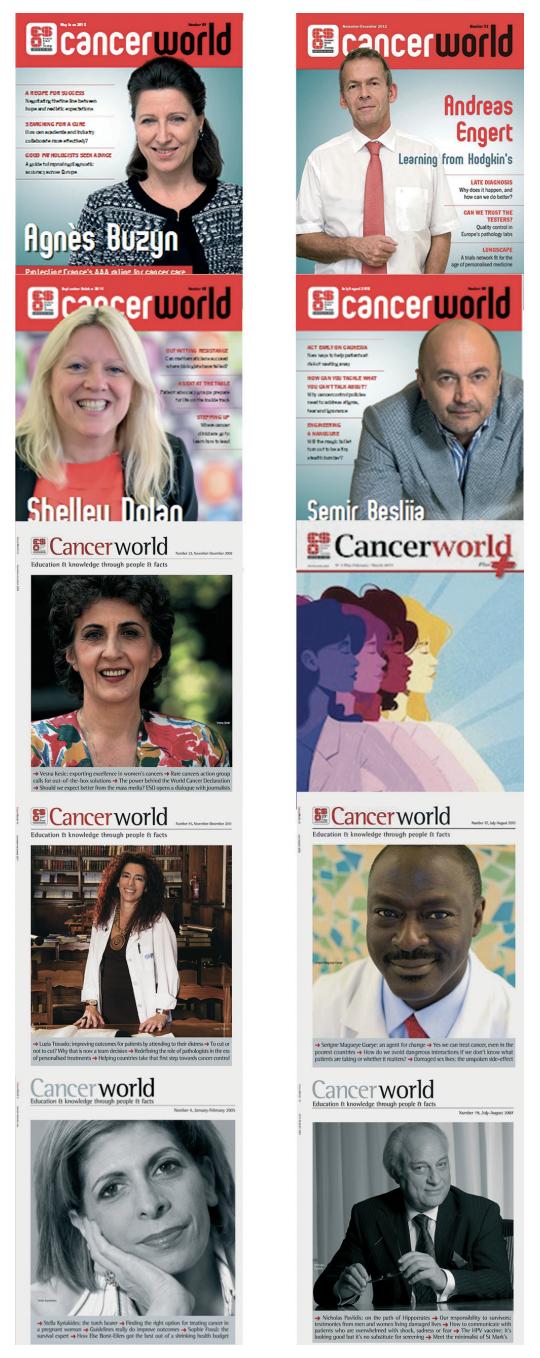
The idea stuck. They launched a publication called Cancer Futures with Springer, then eventually parted ways and created CancerWorld under ESO’s banner.“The principle was simple: I don’t have time—or the skill—to read The New England Journal. But I’ll happily read an interview with the author. It wasn’t papers—it was people. And people have always been ESO’s obsession.”
The European Ideal
“Many organizations you’ve led have ‘Europe’ in the name,” I noted. “You’re a true advocate for the European cause.”
Costa didn’t hesitate. “Absolutely. The words I heard most growing up were: ‘Never again.’ My father went to jail during the war—he was in artillery, ordered to fire on Nice. But he had lived there as a boy. He refused. He sabotaged the coordinates. He was court-martialed.”
“Europe means peace,” he continued.“ Italy was a founding member of the EU. The Erasmus program created a new generation—still proudly Spanish, Italian, or Greek, but first and foremost, European.”
“In oncology, too, it meant a difference. The EU’s plan under Commissioner Kyriakides emphasized quality of life, financial toxicity, and universal care. That’s Europe.”
He looked reflective. “ESMO is becoming global. Only 52% of its members are European now.”
“But ECO survived. Forty-two societies. All European. That’s still something worth fighting for.”
Medicine, Empathy, and Advice to the Young
“What would be your advice to the younger generation?” I asked.
Costa didn’t hesitate.
“They must resist the transformation of medicine into just another profession,” he said. “People say: a doctor is like an architect—you fix a problem, you get paid. But no. You are working on another human being. Especially in surgery. You don’t cut someone’s skin if it’s only for a bill. There has to be something deeper.”
“If you don’t have that sense of mission,” he added, “do another job.”
He paused and smiled. “Same in breast surgery. If you don’t like women, don’t do breast. If you don’t care about aesthetics, don’t do breast. Be a pediatrician, be a radiologist. But if you don’t feel the human side, don’t go into oncology.”
He reflected for a moment. “I must say, the ESO young people—our students—they are different. They do care. It’s not just about issuing an invoice. That gives me hope.”
Books That Shape an Oncologist’s Soul
We turned to literature. “The Odyssey is clearly your book,” I said, “but what else?”
“One Hundred Years of Solitude,” he answered instantly. “It’s about destiny and free will. How much of life is our doing, and how much is just meant to be. And what happens when you try to act for the greater good, but the world turns against you.”
He added, “And Blindness by José Saramago. Every doctor should read it. It’s about how society collapses when people lose their sight—literal and moral. And then, of course, the Italians,” he smiled. “Calvino, Leopardi, Dante. Though Dante’s Paradise is boring. Inferno is much better. Nobody reads Paradise.”
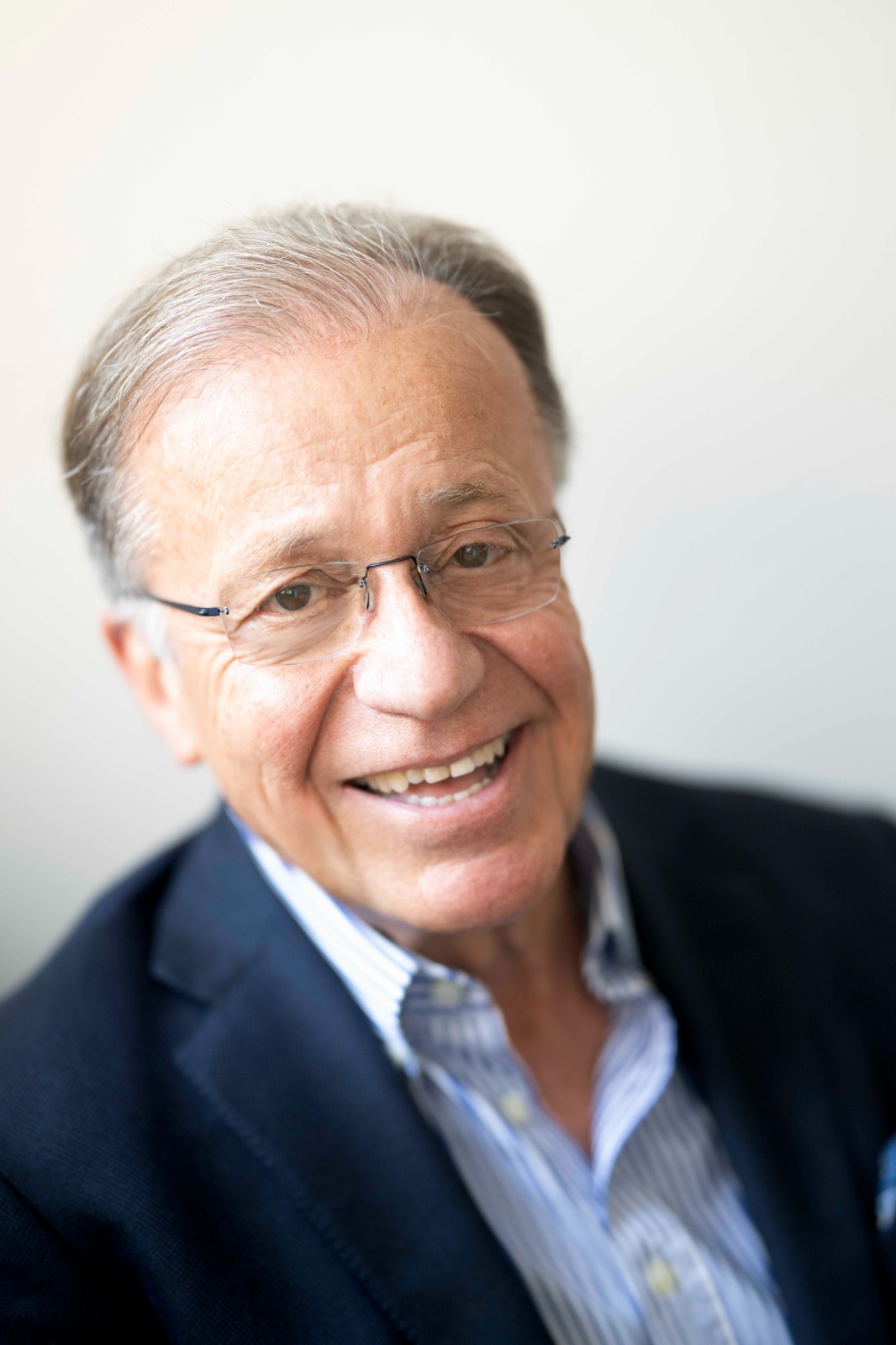
Who Is Alberto Costa?
“If you had to describe yourself in one sentence,” I asked, “what would you say?”
He grinned. “The father of seven children.”
He counted them: “Five biological, from three mothers. One—my stepson—was raised with me. And one more—a girl from Sarajevo. An orphan. Her parents were killed during the siege.”
He explained how he joined Italy’s campaign to support war orphans. He picked her from a list—liked her name. Started sending money. Met her when she turned nine. Now she’s 35 and working in Brussels.
“These seven kids and their mothers,” he said, “they’ve been the center of my life. The rest—my work—came from luck, from hard work, from traveling all the time. But the family came first.”
None of them became doctors. “They think I’m crazy,” he laughed. “One translates Japanese manga, one’s a professor in Scotland, and another’s in Salzburg with Red Bull. One’s a lawyer in New York. The elder is an IT expert. They all do their own thing. Maybe they’re right.”
A European Personal Life
He didn’t shy away from the personal.
“I’ve had three great women in my life,” he said. “And I’ve been European about it: one French, one Italian, one Irish. Three languages, three cultures.”
“We rarely fought. No lawyers. The children grew up together. They’re still close.”
“Maybe that’s why I never wanted to be president of anything,” he said. “I had too much to do at home. I like being number two. I like my freedom.”
He chuckled. “Poor Trump—he thinks he’s on top of the world. But to me, that’s the worst life imaginable.”
And Who Should We Interview Next?
I asked him the question I ask everyone at the end: “Who should I interview next?”
He thought for a second. “I like original stories. Here’s one. I’m going to Zagreb in two days. Look up Steven Pavletić.”
“He was the assistant to Boris Labar—they did the first bone marrow transplant in Europe. Americans brought Steven to Bethesda. He’s retiring now, coming back to Croatia. A man who quietly did a lot for oncology.”
Then he smiled again. “It’s the ones you’ve never heard of that change the world.”

